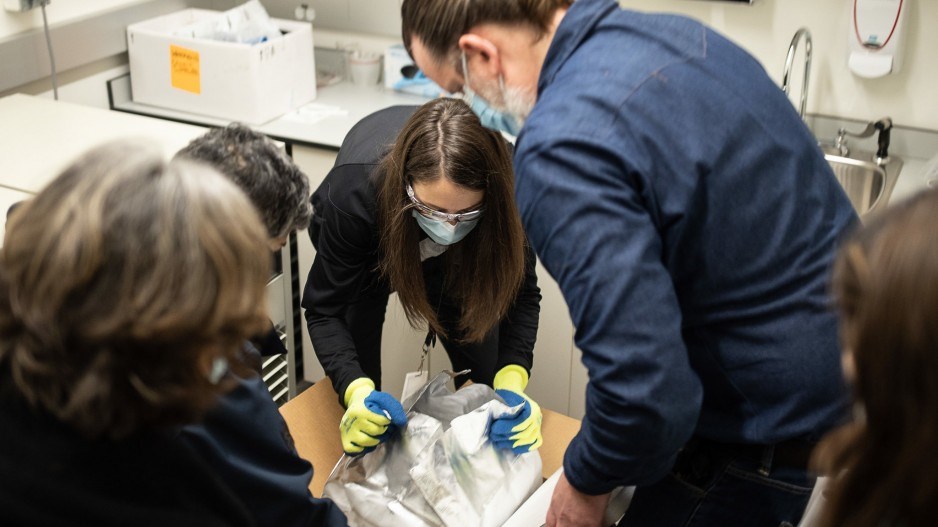British Columbians receiving their first dose of the Pfizer and BioNTech SE vaccine will have to wait a little longer than expected to get their second dose.
B.C. provincial health officer Dr. Bonnie Henry revealed Wednesday (December 23) that British Columbians will receive their second doses 35 days after their first.
Pfizer recommends that the second dose is administered after 28 days.
“But we know we can immunize way more people in the first couple of weeks with their first dose of vaccine and provide that increased protection for people during this very critical time if we just slightly delay when people start getting their second dose,” Henry said during a media briefing.
The province originally planned on vaccinating about 380,000 British Columbians by the end of March 2021.
Henry said the goal now is to administer the first dose to 549,000 British Columbians and the second dose to 240,000 people by the end of March.
Meanwhile, Health Canada approved the use of the competing Moderna vaccine early Wednesday, paving the way for up to 168,700 doses to be delivered to the country by the end of December.
Deliveries of those doses are due to arrive in Canada on December 28 with 100 delivery sites across the country set to be operating by next week.
Henry confirmed those doses will also be coming to B.C. next week.
Because the Moderna doses are easier to transport than the competing Pfizer vaccine, it’s seen as critical in ensuring remote regions in B.C. and Canada have access to vaccinations.
Unlike the Pfizer vaccine, which must be maintained at temperatures of -80C, the Moderna needs to be maintained at just -20C.
Henry described Health Canada’s approval as an “exciting” development for getting vaccines more widely distributed across B.C.
She noted that the Moderna vaccine is more flexible than Pfizer’s in terms of the number of doses that can be broken down in the boxes they arrive in.
The Moderna vaccine will arrive in boxes of 1,200 doses each and can be broken down to 100 doses.
“So that means we can start to address some of the urgent needs that we have to protect people in some of our remote and isolated communities, particularly First Nations communities,” Henry said.
“And also residents of long-term care homes where we know the virus is causing the most damage.”
Delivery of the Pfizer vaccine is currently the responsibility of the manufacturer due to the vaccine’s sensitivity, while FedEx Express Canada Corp. and Innomar Strategies Inc. are handling Moderna’s deliveries.
Pfizer initially required that the vaccine be administered at the sites where it is delivered but Henry revealed Wednesday the vaccine-maker has loosened those restrictions.
All provinces have agreed to shift the per capita proportion of Moderna vaccines to the territories to make distribution easier for northern regions, meaning fewer doses of the easier-to-transport vaccine are destined for B.C.
There were just two vaccination sites operating in B.C. last week when the vaccine initially arrived.
Doses have now been delivered to nine sites in B.C. spanning all of the province’s health regions and 5,603 people have received the first Pfizer dose to date.
“I know there are many, many groups of people who want to know where they fall right now,” Henry said, referring to the order in which people will be inoculated.
“And what I can tell you is, we will know more about that when we have a better idea how much vaccine is available … Right now we have a limited amount of vaccine and we’re focusing on those we can protect who are most at risk.”
She added that it is not likely until March and April that vaccines will be more available to the general population.




